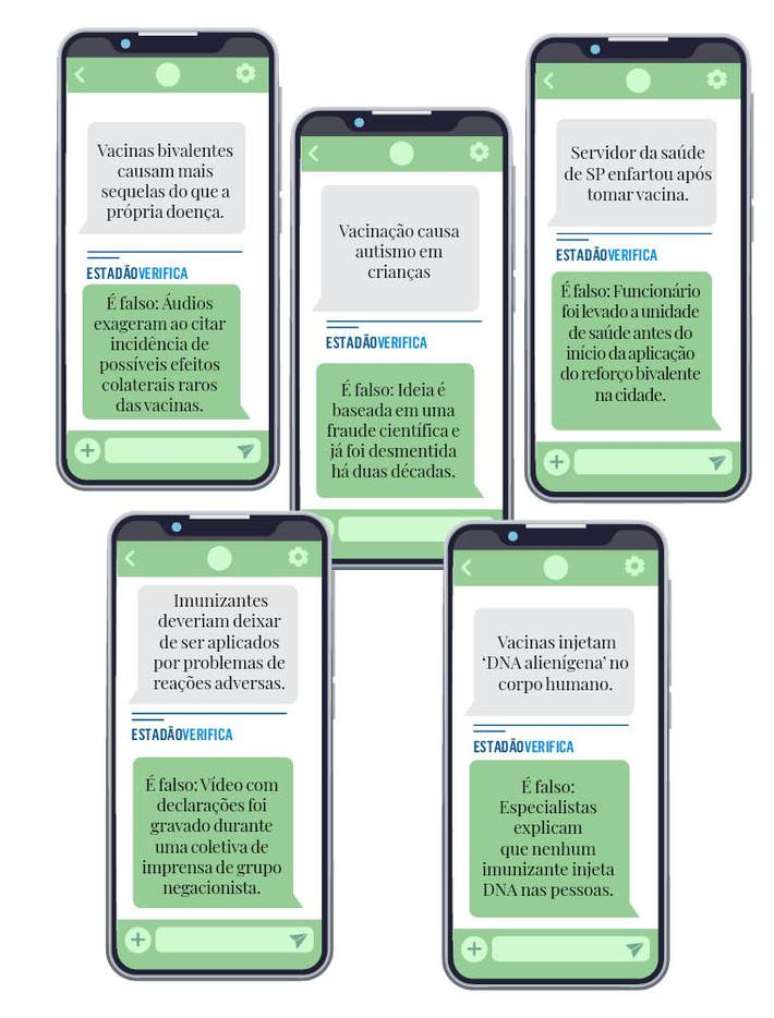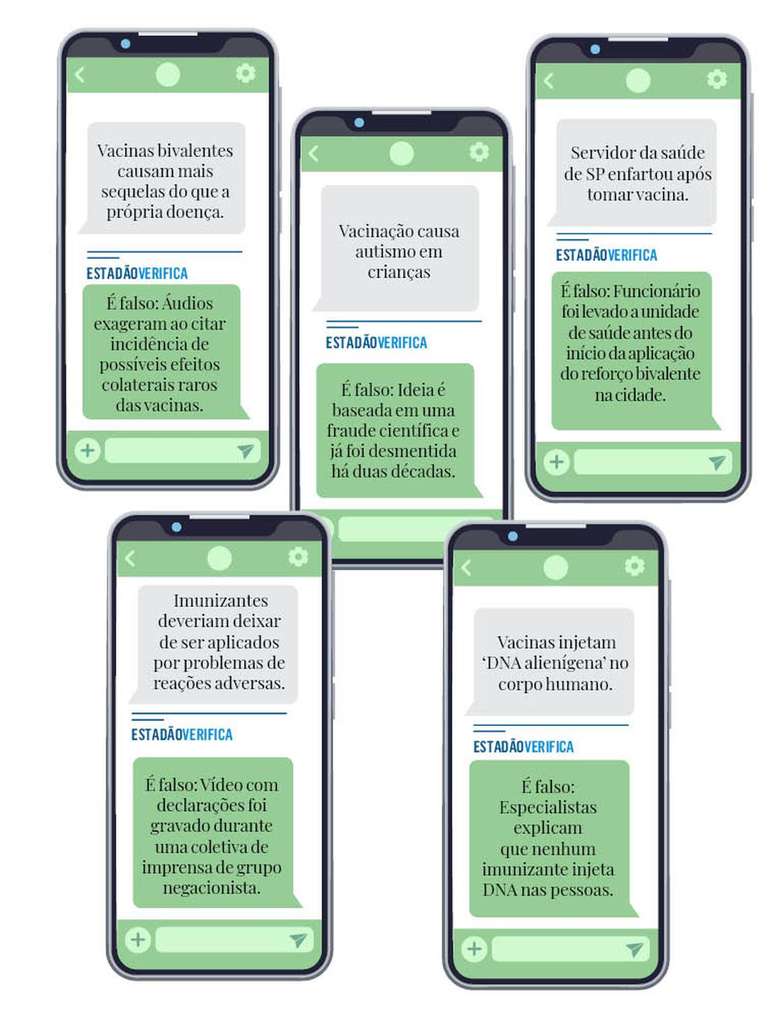Whether it’s new or reworked rumors, the spread of fake news in groups and social networks continues to cause damage to vaccination. Find out how to defend yourself against misinformation
More than two decades after being published and denied, the information that vaccines are related to autism continues to haunt groups and social networks, negatively impacting vaccination of adults and children.
html[data-range=”xlarge”] figure image img.img-2521018d5bebc9e32a09604460bd44a1syaidwlu { width: 774px; height: 1018px; }HTML[data-range=”large”] figure figure img.img-2521018d5bebc9e32a09604460bd44a1syaidwlu { width: 548px; height: 721px; }HTML[data-range=”small”] image figure img.img-2521018d5bebc9e32a09604460bd44a1syaidwlu, html[data-range=”medium”] figure figure img.img-2521018d5bebc9e32a09604460bd44a1syaidwlu { width: 564px; height: 742px; }
For Mellanie Fontes-Dutra, biomedical doctor, neuroscientist and science communicator, this is one of the main examples of how fake news has the power to perpetuate itself longer than the people who share it imagine. Far from being harmless, the spread of fake news is still being singled out by pundits as a major reason for the dangerously low coverage Brazil is trying to reverse today.
Mellanie attributes the sustained propagation of this type of content to a combination of the search for engagement and a lack of moderation on social media. “If today we talk about vaccination for covid-19, misinformation focuses on that. When the focus is on other vaccines, misinformation also follows the trend”.
According to research published by the Poynter Institute in collaboration with Google last year, the problem is widespread: 44% of Brazilians receive false or misleading news every day through social networks and messaging applications. “We know that many people take advantage of the insecurity of others and generate deliberate fear, making others fearful and not making good decisions for their own health,” warns Mellanie.
heated disinformation
While monitoring health and science publications, Mellanie notes the tendency of fake news creators to “rework disinformation.” “Early in the pandemic, they tried to bring uncertainty to the news by saying that covid-19 mRNA vaccines altered DNA, for example. Even after being denied, this news reappeared in a new false association with the cancer, based on the same source”.
This recontextualization of lying, he explains, is what catches people off guard. “If I’m in a medium where there’s a lot of sharing of this type of information, I start to wonder if there isn’t some truth to it. The horde of sharing keeps the wave of insecurity and fear going.”
Today, he sees voices attacking the covid-19 vaccine and raising suspicions about others, such as HPV, measles and the flu, and he says he has a pessimistic view of ending this problem. “I have no doubt that we will soon see misinformation with vaccines still in development, such as the one for bird flu. For those who spread scientific information on the net, it is frustrating”.
However, Mellanie believes the damage can be minimized with lots of scrutiny and exchange between researchers and influencers willing to delve into fact-checking. “It is from this that we build a more critical network, which, when faced with information, will not share it without first verifying it.”
‘Estadão Verification’ checks the information
Have you seen or received content and become suspicious? Better check!
Every day, dozens of messages arrive at Estadão Verify, a nucleus created by Estadão specifically for public fact-checking.
The verification of the various news circulating on the internet takes place on official sources, with the help of public databases, government agencies, surveys, reports and interviews with specialists. To verify the veracity of the contents, on any topic, you can send a WhatsApp message to Estadão Verify. If the content is not true, please let the person who sent you know. Therefore, more people are well informed. To read all the information that has already been verified, log in here.

Source: Terra
Ben Stock is a lifestyle journalist and author at Gossipify. He writes about topics such as health, wellness, travel, food and home decor. He provides practical advice and inspiration to improve well-being, keeps readers up to date with latest lifestyle news and trends, known for his engaging writing style, in-depth analysis and unique perspectives.









